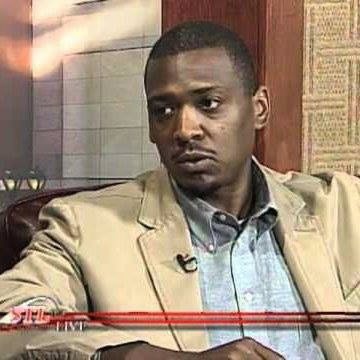With Reparations, We Must Demand Repair — And Heal Ourselves
David Ragland, Yes!, August 30, 2019
{snip}
From Aug. 8 to 11, over 20 grassroots organizations participated in this country’s first National Grassroots Reparations Convening focused on healing in Ferguson. The date, location, and topic were chosen to coincide with the five-year anniversary ceremony and ritual of the death of Mike Brown Jr., an 18-year-old who was shot and killed by a police officer Aug. 9, 2014. It was also significant because August of this year marks 400 years since 20 Black bodies were brought to this land, ushering in a form of enslavement — chattel slavery — that would change global relationships, cultures, and economies for centuries to come. The truth about this history must be told to begin the healing.
{snip} I could see clearly how the generational trauma of slavery, the history of Jim Crow, and the mass incarceration of Black lives shows up in the genetic energy to protest police violence.
The uprising in Ferguson following Brown Jr.’s murder lasted more than 300 days, not because of some capriciousness, but for the very reason Black folks in this country have been demanding reparations for centuries: gross violations against them physically, psychologically, spiritually, culturally, and economically.
{snip}
The traumas visited upon Black bodies for the past 400 years have included physical violence and theft of spirituality, which is linked to today’s mental and spiritual wounds, passed down from generation to generation.
When we consider healing — rehabilitation, rest — in the conversation about reparations for past harms, one must think of the physical violence endured by those who were enslaved and the long-term impact on them and their descendants, whose psyches have been affected by generational trauma. This trauma is compounded by the daily experience of being Black: encountering not only discrimination based in the belief that I don’t like you because you’re different, but also the racism that claims I am better than you and therefore I should have benefits and privileges that you cannot. As a result, Black folk continue to grapple with systemic humiliation that collectively keeps them in generational poverty — body, mind, and spirit.
New research into epigenetics speaks to how trauma from slavery can be passed down from generation to generation. During slavery, we were robbed of our traditional rituals and spirituality, our native tongues, and our land; we were violently separated from our families; we were lynched and brutalized physically, emotionally, and mentally. This has been described as “post-traumatic slave disorder,” but as many of my colleagues, like Jumoke Ifetayo of the National Coalition of Blacks for Reparations, would say, we are still living with compounded trauma from our experience with every system of U.S. dominance, including health care.
{snip}
During the Ferguson Uprising, people were retraumatized: facing down tanks, Humvees, tear gas, smoke grenades, and weapons pointed in our faces. Ferguson protestors have been found dead under unclear circumstances in the months and years after the uprising. Law enforcement continues to be an occupying presence in the mostly Black town. Ferguson is the most recent example of why reparations are needed and the ways in which they can be administered.
Our response to the militarized police violence of our own government against our communities was not only in standing up to it, but also learning from the trauma and building community through the sharing of stories, meals, resources, and connecting with each other to withstand the onslaught of state-sanctioned violence.
{snip}
The enormity of healing from slavery and the subsequent oppression of Black people in this country is a long-term commitment that we must demand from our governments, White allies, and the sources of knowledge we must seek for ourselves. And while we at FOR Reparations and The Truth-telling Project understand that it is a long-overdue debt to be paid by the benefactors — government, corporations, and individuals — we also recognize that full repair is necessary to end the war on Black lives.

David Ragland

















